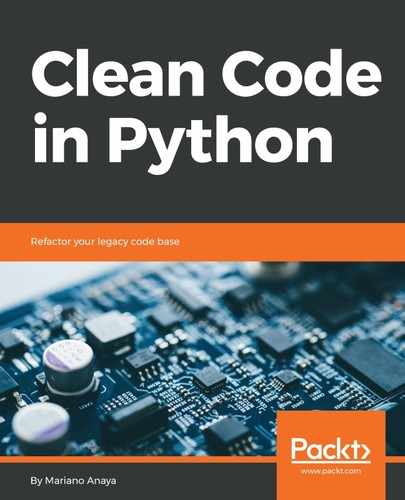Generators save a lot of memory, and since they are iterators, they are a convenient alternative to other iterables or containers that require more space in memory such as lists, tuples, or sets.
Much like these data structures, they can also be defined by comprehension, only that it is called a generator expression (there is an ongoing argument about whether they should be called generator comprehensions. In this book, we will just refer to them by their canonical name, but feel free to use whichever you prefer).
In the same way, we would define a list comprehension. If we replace the square brackets with parenthesis, we get a generator that results from the expression. Generator expressions can also be passed directly to functions that work with iterables, such as sum(), and, max():
>>> [x**2 for x in range(10)]
[0, 1, 4, 9, 16, 25, 36, 49, 64, 81]
>>> (x**2 for x in range(10))
<generator object <genexpr> at 0x...>
>>> sum(x**2 for x in range(10))
285
